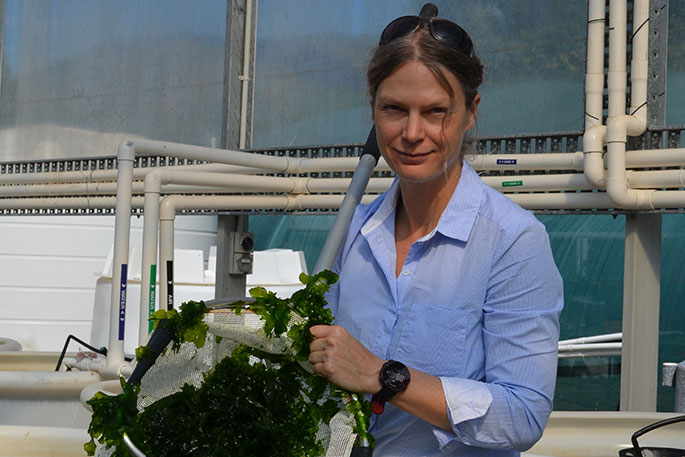The Government and the University of Waikato are investing $13 million in a new research programme in Tauranga aimed at helping tackle some of the biggest issues facing New Zealand's primary sector, Education Minister Chris Hipkins announced today.
The project, part of the Entrepreneurial Universities programme administered by the Tertiary Education Commission, will see leading Australian-based expert Dr Marie Magnusson relocate to Tauranga to set up the programme.
'This is an exciting development for the University of Waikato, Tauranga and the whole of New Zealand," says Chris.
'By supporting entrepreneurship at universities, we can help strengthen innovation, build academic and industry connections and grow the pipeline of entrepreneurs.
'This type of research and technology will be critical as we look for solutions for things like reducing cattle methane emissions, limiting nutrient run-off from pasture, and fighting agricultural and horticultural diseases in an environmentally sustainable way.”
The Government is committing approximately $4 million over five years to the programme, while the University of Waikato has pledged $9 million.
The work will focus on algal biotechnology, using science to grow a new and valuable industry in the Bay of Plenty, and New Zealand. It will be based on producing more algal species, such as kelp, red algae, and sea lettuce, then developing bioproducts like animal feed supplements, cosmetics and human foods.
Other goals include addressing some of the country's pressing primary sector issues by reducing methane emissions from cattle through improving feed, and creating environmentally benign solutions to agriculture and horticulture pathogens like PSA.
The first stage will examine options for growing macroalgal species like kelp and sea lettuce alongside existing mussel farms. Later stages will extract valuable bioproducts for use in fertilisers, animal feed supplements, cosmetics and other initiatives.
Marie will move from her role as a senior research fellow at Australia's James Cook University in Townsville. She will be joined by other senior academics as well as post-graduate students.
Relying on strong science, the products the researchers develop will be targeted for markets where there is demand, with an eye to industry development, and future job creation in the Bay of Plenty and the rest of the country.
New Zealand's aquaculture industry was worth nearly $500 million in 2015, and is estimated to grow to $1 billion by 2025, with the project aiming to contribute significantly to that growth.
The initiative will work with organisations locally, nationally and internationally, and partner with private companies where appropriate.
Staff will work with local iwi and Māori businesses in the region as a priority.
The University of Waikato will be backing the research and entrepreneurial work with an increase in undergraduate and graduate teaching, including offering an Aquaculture major.
Deputy Vice-Chancellor Research Bruce Clarkson says the University is extremely pleased to have attracted someone of Dr Magnusson's calibre to the position.
"The project is a perfect fit , supporting research and development in Tauranga and across the Bay of Plenty. It is built on a strong platform created by the hard work of Prof Chris Battershill and his team in establishing the Coastal Marine Field Station with support from the Bay of Plenty Regional Council, iwi and many other stakeholders."



0 comments
Leave a Comment
You must be logged in to make a comment.